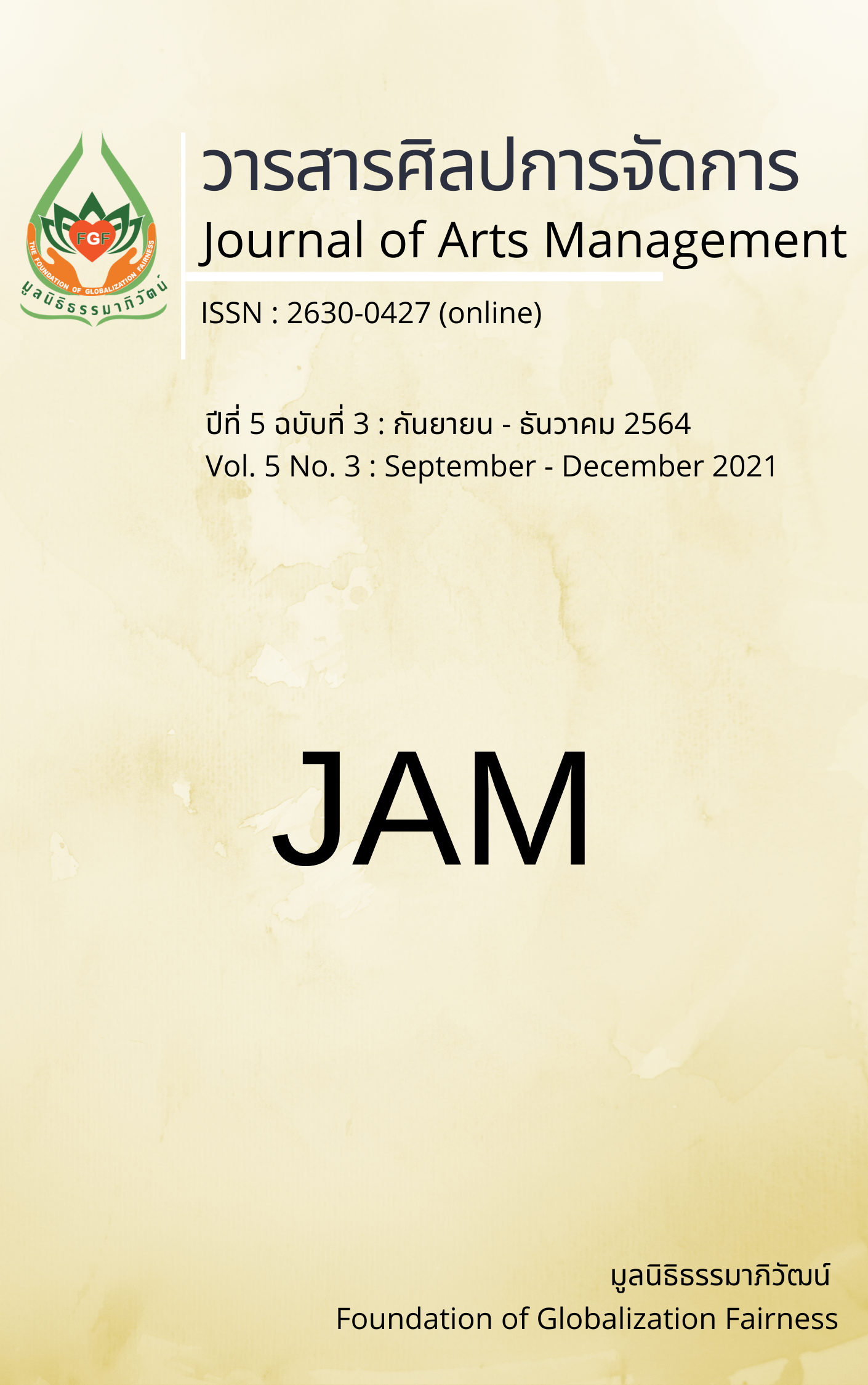Buddhist Ethics of Sexual Intrercourse with AI Robot Citizen
Main Article Content
Abstract
This research article has three objectives: 1) to study Buddhist ethics on sexual intercourse with humans; 2) to study Buddhist ethics on sexual intercourse with human corpses, sculptures, and dolls; and 3) to study Buddhist ethics on sexual intercourse with AI robot citizen. This research was documentary research involving content analysis from Pali canon, commentaries, books, and related research. The results showed that the Buddhist ethical norms concerning sexual intercourse with human beings are Five Precepts, especially the Third Precept that involves abstention from sexual misconduct. It has four elements of action: 1) being a forbidden object for oneself, 2) being contented before, during, or after intercourse, 3) every action that lead to the realization of sexual intercourse, and 4) the contact to three organs of the other: anus, urethra, or mouth. For individuals in marriage, cohabitation or intimate relationships, all other individuals outside such partnerships are considered a forbidden object for them. If both parties had sexual intercourse, it is considered sexual misconduct. For the Buddhist ethics, having sex with a human corpse involves three action elements (excluding the first element). If a person in a relationship has sex with a corpse that has three complete organs, it is sexual misconduct. Having sex with statues and dolls that do not look like humans is not sexual misconduct. But people having sex with sex dolls or AI robots that look like humans are considered the same as in the case of human corpses. And the Buddhist ethics of sexual intercourse with an AI robot citizen has the same four action elements as those norms applied to sexual intercourse with a human being, because citizenship entails the equality of status of such a robot with that of a legal human being.
Article Details
Views and opinions appearing in articles in the Journal of Arts of Management It is the responsibility of the author of the article. and does not constitute the view and responsibility of the editorial team I agree that the article is copyright of the Arts and Management Journal.
References
BBC News Thai. (2019, January 23). Sex doll brothel: A business is not immoral or tramples on the dignity of women?. BBC News Thai. https://www.bbc.com/thai/features-46964159
Borwornnuntakul, T. (1993). Sexuality Ethics. Kasetsart University.
Daily News. (2016, January 7). Trend of sex with robots, expect to marry a person. Daily News. https://www.dailynews.co.th/foreign/371707
Dimmock, M., & Fisher, A. (2017). Ethics for A-level. Open Book Publishers.
Duangwiset, N. (2016). Sex and masculinity in Buddhism and the control of sex among monks, novices and pandaka. Social Science Journal of Naresuan University, 12(1), 3-25.
Empradit, N. et al. (2003). General knowledge about sex education (3rd ed.). Thammasat University.
Ilangakoon, S. (2016). Sexual ethics; a need indeed, Buddhist ethics as a model. Cultural and Religious Studies, 4(2), 134-139.
Inthasara, W. (2006). Buddhist Ethics (2nd ed.). Dhammada.
Khemapañño, P. A. (2008). The Buddhist Ethics Related to Ethical Issues: A Case Study of Cohabitation in Thai Societies at the Present Time[The Thematic Paper is an integral part of Doctoral dissertation, Mahachulalongkornrajavidyalaya University].
Kromphrayavajirañăṇavarorasa, S.. (1995). Beñcasîla and Beñcadhamma (Tri Dhammasîksă) (15th ed.). MBU Press.
Kromphrayavajirañăṇavarorasa, S. (2009). Vinayamukha Volume 1 (40th ed.) MBU Press.
Kruatrachue, M., Damrongphol, P., & Pokethitiyook, P. (2008). Biology 1. Faculty of Science Mahidol University.
Mahachulalongkornrajavidyalaya University. (1996). Thai Tripitaka. MCU Press.
Mahamakut Buddhist University. (1993). Thai Tripitakas and commentaries, set of 91 volumes. (3rd ed.). MBU Press.
MRG Online. (2015, August 5). “Sex with Robots” will be normal in 50 years!. MGR Online Europe. https://mgronline.com/around/detail/9580000088185
Phra Brahmagunabhorn (P. A. Payutto). (2008). Buddhist dictionary vocabulary version (11th ed.) S.R. Printing Mass Products Company.
Phra Brahmagunabhorn (P. A. Payutto). (2014). The Buddha Dhamma, amended edition (39th ed.). Mahachulalongkornrajavidyalaya University.
Phrañăṇavarodom (Son Kiccagăro). (2000). Compilation of problems and answers to the Beñcasîla-beñcadhamma and Uposathasîla (13th ed.). Mahamakut Buddhist University Press.
Promtha, S. (2005a). Buddhism and ethical problems, prostitution, abortion and euthanasia (3rd ed.). Chulalongkorn University.
Promtha, S. (2005b). Buddhist philosophy: Human, social and ethical problems. (2nd ed.). Sayam.
Rattanapornsiri, W. (2010). Prefessional Dictionary English-Thai (3rd ed.). Thanachot Company Limited.
Suphamangmee, S. (Guest Editors). (2020, May 15). Love, Machines and Sex Robot. GQ Style. https://www.gqthailand.com/views/article/future-of-love
Thai news agency. (2018, June 24). “Sofia” AI robot digital technology. mcot.net/economy. https://tna.mcot.net/tna-218494
Vaidayasevi, W. (Collector). (2005). A study guide of the Abhidhammatthasaṃghaha part 5 Vithĩmuttsaṃghahavibhak (6th ed.). Nab Mahani Ranon Foundation.
VoiceTV. (2019, October 3). The world's first with a robot whore. Talking Thailand. https://www.youtube.com/watch?v=W6tL8eV8Qys
Wanakijpaiboon, N. (2016, September 20). “Sexbot” when people are about to have sex with a robot. www.matichonweekly.com. https://www.matichonweekly.com/column/article_8378
Yodthong, A. (2020). Theravada Buddhism and ethical perspectives on sexual intercourse. Journal of MCU Peace Studies, 8(3), 1166-1182.


